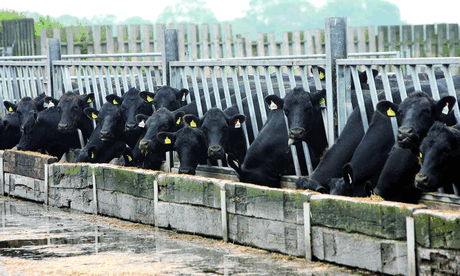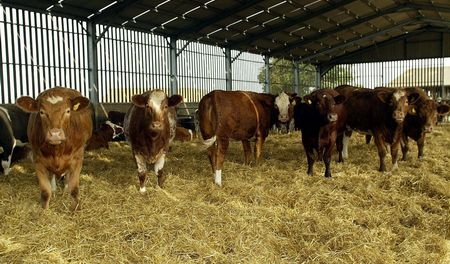Opinion: Farming sector needs to work together

The south west has always produced great beef. In the current economic climate, the challenges to the farming sector have never been greater, so the need to work together has never been stronger.
As an industry, we need to establish a stable pricing structure and supply chain, bringing a fair price to the producer and allowing the whole supply chain to serve their customers at a competitive, affordable and sustainable price.
But to do this we need to further the success some farmers have already made in forging strong relationships with their processors. The beef enterprise must be as efficient as possible and forward contracts can reward this efficiency by offering long-term commitment and rewarding success. Knowing the price in advance helps beef farmers manage input costs more effectively and gives them the security and confidence to plan ahead.

As a company at the top end of the supply chain, McDonald’s prefer to work with dedicated “partners” rather than searching the commodity market for the lowest cost supplies. And it is committed to sharing best practice with all suppliers – including the beef farmers – because this helps improve quality and increase value for everyone.
To make real tangible progress this industry must share information and increase transparency across the board, working together in this manner brings the chain closer to achieving key goals, improving sustainability through the currently fragmented British beef supply chain.
Many farmers have seized the opportunities available to maximise efficiency. Using estimated breeding values should be considered the norm to maximise performance. Whether you are producing a high-quality suckled calf product for finishing or are a dairy producer selling calves through a rearing and finishing system, performance figures can help produce a consistent product.
Once you have those figures to hand it’s vital you use them in conjunction with slaughter data. Not only does this information give you a good handle on carcass grades and weights allowing finished animals to be traced back according to their parents, it provides a clear interpretation of health issues such as liver fluke which could have been affecting performance.

Coupled with that, a visit to the slaughter line can only benefit a producer in terms of understanding carcass weights and grades. There is no better way to understand what processors want than seeing how your own stock fits into their plans. Failing to meet specification can be costly, but unless you take action to make your animals more suited to the current market you will never reap all the rewards on offer.
And in a somewhat volatile feed market where farmers are faced with rising costs, knowing the quality as well as cost of what you’re feeding is vital. Analysing forage stocks to know what supplement feeds are required will also maximise efficiency. And with the rising costs of energy and protein feeds to consider, now really is the time to maximise the one thing the south west has in abundance – grass.
In the south west, McDonald’s has long established relationships with Southern Counties Fresh Foods and St Merryn Foods through our strong relationship with our beef hamburger patty producer. Our alliance with these two suppliers reaps benefits for all parties – both suppliers have increased their business involvement with McDonald’s, with Southern Counties Fresh Foods increasing its business with us by 50% over the past six years to become one of the largest beef suppliers to McDonald’s in the British Isles.
With McDonald’s spending more than £5.5m on beef from the south west last year and new restaurants planned for the area, it’s clear there will be even more opportunities for south west finishers to gain additional volume in 2009.
